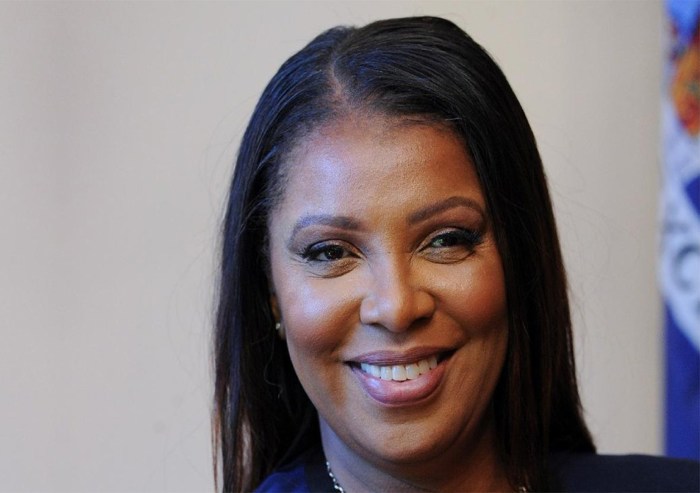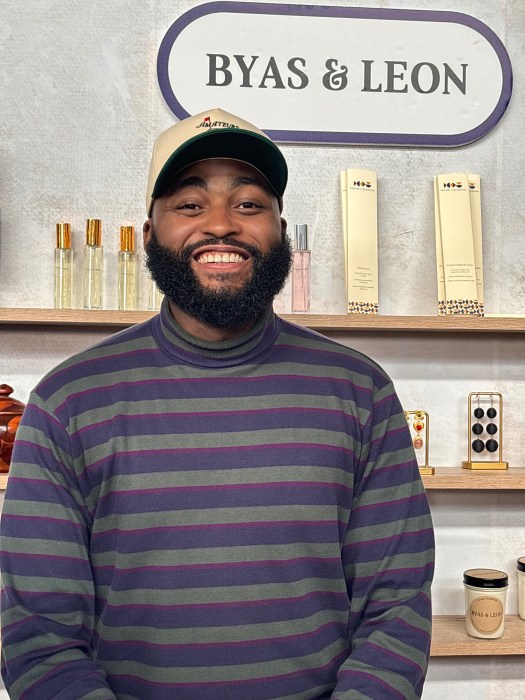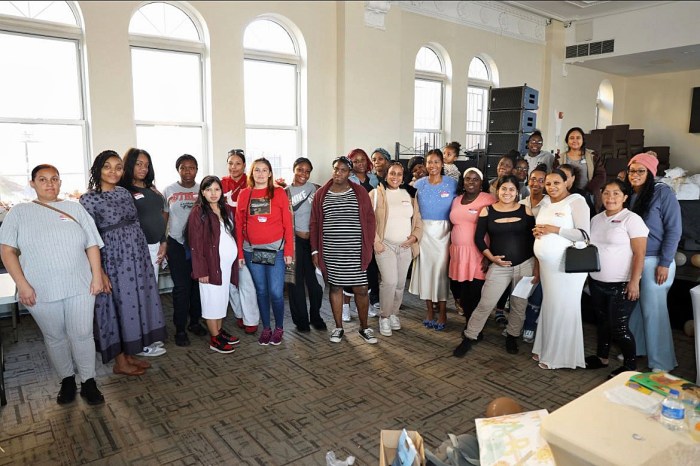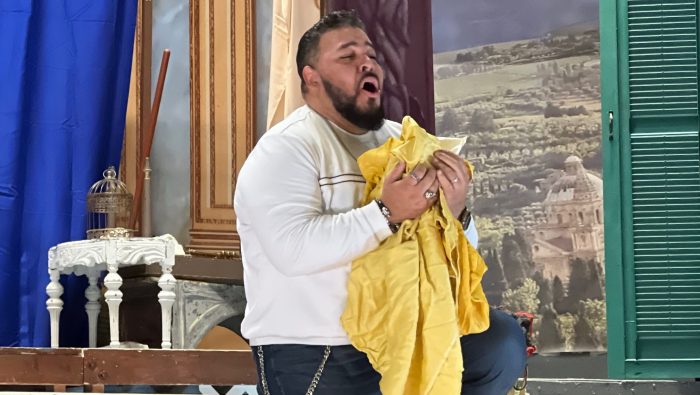The Greater Works Deliverance Church, pastored by Sharlene Nash-Pryor at 1098 Bedford Ave. in Brooklyn, is a socially conscious church that believes in addressing issues that affect the community. To that end, on a recent Sat., it hosted a teach-in on youth incarceration, featuring the documentary film Juvie, about youth tried and sentenced as adults.
The event was organized by the Center for NuLeadership on Urban Solutions (CNUS), under the direction of its executive director, Dr. Divine Pryor. Growing up, Pryor himself dropped out of school and got involved in criminal activity that landed him in jail; however, he pulled himself up and went on to become a college professor, law-enforcement consultant and motivational speaker. He co-founded CNUS, an independent think tank founded and developed by formerly incarcerated professionals working to increase justice through system reform, community empowerment and individual transformation.
CNUS recently launched Project ReNu, serving individuals returning home from prison, on parole and/or in recovery from drug and alcohol abuse. One of the many services it provides is a record repair program that helps individuals obtain, review and correct their “rap sheets.” Stated Pryor, “Anyone who’s ever been arrested should have a copy of their rap sheet. No one should ever know things on your record that you don’t know.”
He went on to say that once errors are corrected, if the individual wants to file for a Certificate of Rehabilitation, Project ReNu helps with that, too. The organization has also launched workshops teaching people how to tell their personal narrative so when they’re sitting before a potential employer, the Housing Authority, or an educational institution they will be able to talk about their criminal record in a way that minimizes the stigma and allows them to be seen as a full person.
Pryor then introduced Juvies, directed by award-winning filmmaker Leslie Neale, who taught a video production class at Los Angeles Central Juvenile Hall to 12 juveniles who were all being tried as adults. Juvies is the product of that class. Narrated by actor Mark Wahlberg, himself a former juvenile offender, the film follows the lives of several young people who will serve most, if not all, their lives behind bars for crimes they either did not commit or were only marginally involved in.
Among the youth featured in the film is Duc, who was arrested when he was 16-year old because he was driving a car when shots were fired from it. No one was injured, Duc was not a member of a gang and had no priors, but, incredibly, he received a sentence of 35 years to life. After the film was released, his sentenced was eventually lowered to 11 years to life. He went before the California Parole Board in 2009, but was denied parole.
There was also 14-year-old Anait, an Armenian immigrant, who drove two boys to a high school and dropped them off. The boys got into a fight with another boy and subsequently killed a third boy who attempted to break up the fight. Because she was the driver of the “getaway” car, Anait was charged as an accessory to first-degree murder and originally faced 200 years. She has since taken a deal and is serving seven years.
Then there was Mayra, a girl raised in gangs. At 16 she was asked by her gang to kill a girl – her best friend – who broke one of their rules by sleeping with a boy from a rival gang. Mayra shot the girl, paralyzing her for life. Mayra received life plus 25 years for her crime.
Interspersed with the youths’ stories are interviews with experts in juvenile justice and gangs, as well as former LA District Attorney Gil Garcetti, who admitted that sentences during his own tenure as DA were unfair and never should have happened.
The film also points to the well-known fact that adolescents’ brains are not yet fully developed, all too often causing them to have poor impulse control and make dumb choices without any thought as to consequences. That’s why society protects youth from adult activities by restricting the age they can drink, drive, smoke, vote, marry, and even watch R-rated movies. Yet, putting all this aside, each year over 200,000 youth are prosecuted as adults in the US, even though studies show that half of those who committed crimes under the age of 18 will never go on to commit another offense but will outgrow their impulsive behavior and become productive citizens.
Following the screening, Kate Kyung Ji Rhee, director of the Institute for Juvenile Justice Reform and Alternatives, led a teach-in and discussion of the film. Pastor Sharlene Nash-Pryor also spoke of her own grueling experience as a mother when her son, who is now grown up and doing well, was in and out of the system from age 13 to 16. She strongly urged people not to make the mistake she did by filing a Person In Need of Supervision or “PINS” Petition in Family Court, which she thought would help her son but was damaging instead.
The pastor’s nephew, Warnell Nash, who has been out of prison eight years now and will soon be ordained, said that he takes some responsibility for her son getting caught up in bad things because of the image he projected back then. Nash said he believes there is a great need for men to set different trends for the youth to model themselves on.
A man doing just that is Thomas Jackson III, who was there with his eight-year-old son, Tyson. Jackson said he was in the streets from 13 years on and went into Rikers Island at age 16. Now, he and his wife are working hard to break the cycle with their own sons. They are proud to say they are succeeding.
The Center for NuLeadership on Urban Solutions is located at 510 Gates Ave. in Brooklyn. Dr. Divine Pryor can be reached at (718) 484-5879 or (718) 484-5883.


























